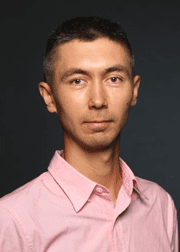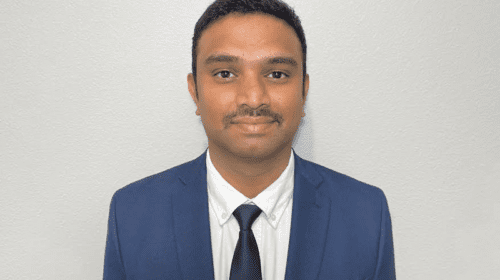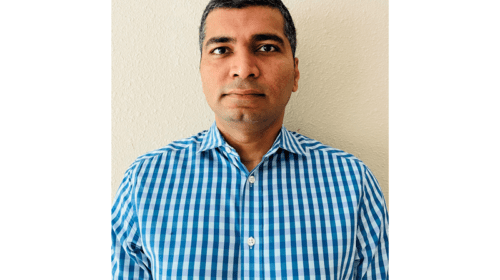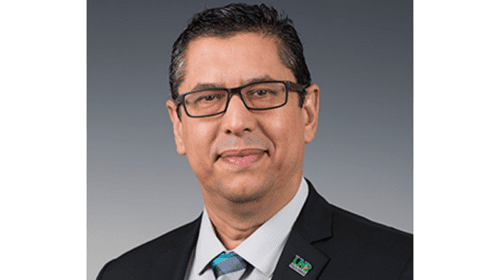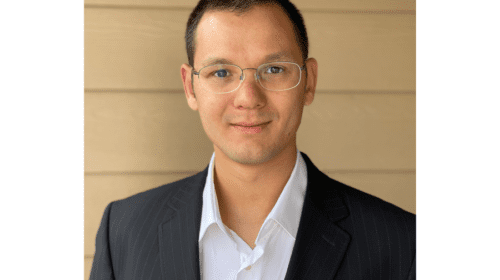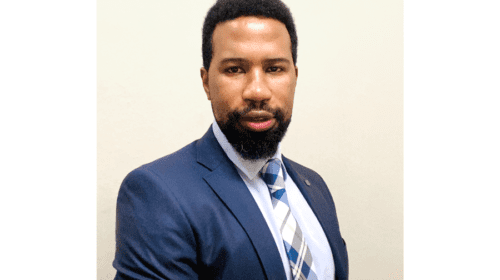Alan Alexeyev: Tell us a little bit about your current (or latest) position and what you do, as well as how you found a job.
Yury Rykov: I am a support and development engineer at one of the world’s largest oilfield services companies. Our company develops and operates very sophisticated drilling tools, often used around the world in geographies that have extremely different characteristics. These tools have electronic and mechanical systems built into drilling collars to perform measurements and steer the well. The complexity of this technology requires extensive engineering support.
In my role, I serve as a focal point between the product development center and our operating facilities worldwide. I provide expert technical support to manufacturing and field users in case of technical issues that are unable to be resolved locally. When global field users contact our support center for assistance, I do my best to provide solutions that will reduce non-productive time and keep the project operating optimally. My scope also covers tool failure investigations, various improvement projects, and new product development.
I have a decade of experience as a field engineer and an operations support engineer. I myself utilized this support system when I was a field engineer, and I have been considering this position for a long time. My background and troubleshooting skills allowed me to obtain this specialized engineer position in 2019.
AA: What inspired you to start a career in the oil and gas industry? How has your career evolved in this sector?
YR: The advantage of my degree in Technical Physics was that it offered a very broad spectrum of opportunities. I was looking for a company that offered a solid development plan for young specialists so that I could progress through my career. I also had a desire to travel, see the world, and work on a multi-national team. My current employer offered all this, and I joined the company without hesitation.
I started as a field engineer working with our equipment on a wellsite. This was an invaluable experience, as I learned about the diverse conditions that our tools work under, the capability of our maintenance facilities, and client requirements. I was very efficient at my work and eventually became an operations support engineer and later a remote operations engineer. Supporting multiple sites simultaneously, I had the opportunity to work with almost every kind of equipment within our department. Having this broad and deep knowledge of our technologies gave me a strong foundation for my present role.
AA: Your role has involved using electrical, mechanical, electromagnetic, nuclear physics, and hydromechanical principles to improve downhole drilling equipment and tool reliability. Are you developing new technologies or processes or both? What do you find most rewarding?
YR: As a support and development engineer, I take part in new technology development as well as in process optimization. On the one hand, I am working on operating and maintenance procedures optimization. One of the recent priorities was to improve the operating efficiency of equipment by extending the time between maintenance. I, along with the sustaining team, was updating the field maintenance procedures for better efficiency, at the same time ensuring that mechanical components don’t wear out, electronics don’t fail, and resistivity and nuclear calibrations remain valid over the whole operating cycle.
On the other hand, I am playing a crucial role in new hardware and software development by being a focal point in field tests. I ensure product quality, introduce improvements, and develop solutions to any issues that arise. For example, we introduced a lot of enhancements to our electromagnetic propagation technology, enabling not only geosteering, but also reservoir mapping while drilling. Validating the tool performance and the measurement data, I identified several tool software issues. They were promptly addressed by software updates. It is very satisfying to see my solutions working. I am very proud when my contributions eliminate critical problems, and my swift responses to field requests prevent downtime, which saves money for our company and clients and benefits our customer relationships.
AA: You have an advanced degree in Technical Physics. How has your university experience helped you progress in your O&G career in terms of technical expertise and other skills, such as leadership or project management?
YR: All our sophisticated tools operate on physical principles. Knowing how the tools work gave me a great advantage over my peers. Having solid technical knowledge gave me confidence in my equipment and its capabilities. I excel at troubleshooting due to my academic training, which has given me the ability to understand all of the technical intricacies involved in what we do. Working on group projects at the university gave me essential communication skills. These skills turned out to be vital in my work, as our technical projects often require the joint efforts of several teams to complete.
One of the most important career steps in our company is a project that must be completed by every field engineer. The most challenging part is to find a good topic for the project, and many engineers struggled with it. My education and hands-on experience allowed me to develop physical hardware, and I was one of the very few people capable of doing this. I developed a depth sensor for drilling rigs in which the standard sensor had struggled due to the rig design. My project was recognized by the company and earned me a promotion.
AA: How does your area of specialization contribute to production, performance, and/or profitability for O&G companies?
YR: Hydrocarbon production has become much harder over the last decades. The problem is that oil doesn’t form underground pools or lakes; it occupies pores in rock formations, such as sandstone or limestone. Consequently, reserves are determined by the formation porosity, and the production rate is limited by the formation permeability. Rich reserves with a high thickness of the production layer could be produced by drilling simple vertical wells. However, such reserves are mostly depleted. Today, drilling an economically feasible well requires a new approach.
Our tools are capable of steering wells precisely in the target formation. Our most advanced electromagnetic propagation tools can detect formations and map the reservoir within 100 feet around the borehole. The sampling tool I am currently working on can measure the pressure of the formation fluid, identify fluid composition by optical spectroscopy methods, and capture fluid samples for an accurate lab analysis. All this is accomplished with a single drilling bottom hole assembly (BHA), which enables the well to be placed in the best spot. Optimum well placement increases the production rate and the recoverable amount of oil. The reserves that were not economically feasible before can now be profitable. Oil companies even return to old fields as new technology allows for recovering the remaining hydrocarbons.
Due to increasing operating costs, our clients require faster drilling, higher measurement accuracy, and better reliability, which drives the need for continuous improvement in downhole tools. As a physicist, I analyze the measurement data from the field and identify the development areas based on the data and field feedback. Our nuclear measurements tool, for example, was enhanced with a software upgrade that provided more accurate formation density and porosity. The electromagnetic propagation tool I mentioned previously received an electronics upgrade that greatly improved reliability. All these enhancements bring value by eliminating downtime or the need for additional logging runs with other specialized tools, such as wireline.
AA: How did you find yourself transitioning from the academic environment to the industry/corporate world? What would you tell young engineers who are about to make such a transition?
YR: The school-to-work transition was an exciting and challenging period. I often asked myself, “What am I doing here?” I knew nothing about the oilfield industry and had to go through a very intensive training program, spending several months in a learning center. This was like getting a second academic degree.
The job was not limited to working with the drilling tools. It required a lot of communication with other people inside and outside the company, which enabled me to get out of my shell and actually enjoy this experience. I know people from my university who couldn’t deal with the challenge and left. For me, the transition was positive, but people are different. If you have the energy for such a journey, go for it. Even if things don’t work out, you can always redirect.
AA: Do you train or mentor young engineers? What supervisory responsibilities are involved in your role?
YR: I had been training and mentoring trainees while working as a field engineer and an operations support engineer. Although this is not a responsibility associated with my current role, when I am assisting users and troubleshooting field problems, I always explain the reason behind my response, so that the user understands the full picture. Educating field users is beneficial in the long term, as they will be able to resolve more issues locally, which also frees my time to focus on more consequential problems.
AA: Has the O&G industry taken initiatives to smoothly transition young professionals into the oil sector? What, if anything, could be done better?
YR: Unfortunately, this is increasingly becoming a problem. Due to the global focus on renewable energy, the oil and gas industry is now less appealing to young specialists. Additionally, several cyclical industry downturns over the last 10 years resulted in severe cost-cutting, and this had a negative impact on O&G training programs. As a result, companies struggle to find talented staff. We often see the impact of staffing shortages in the field, and I see it personally in the requests our support center receives. I think the industry needs to ramp up recruiting efforts and provide better training in industry learning centers.
AA: Given the cyclical nature of O&G, what advice do you provide to students who have an interest in pursuing a career in the industry?
YR: Employers realize the cyclical nature of the business and try to retain valuable employees. Considering the shortage of specialists we are currently experiencing, there are good opportunities available. I don’t think that a well-performing employee will have job security issues.
There is a misconception that the oilfield industry will disappear as such due to the development of renewables, but this is not the case. Renewables will not be able to satisfy the global energy demand in the foreseeable future, and oil is also an irreplaceable chemical source for many other industries. Oilwell drilling will continue for many decades to come, and companies will, therefore, need talented engineers and specialists.
AA: Are the technical skills needed to advance in the industry changing? How do you pursue professional development and keep up with, or ahead of, innovation in the industry?
YR: Advanced technology now enables the production of reserves that were not feasible in the past. Modern drilling tools cannot be sustained without engineers who understand how they work, therefore a high level of education and technical skills are definitely required.
There is an increasing interest in Artificial Intelligence in many industries, including the O&G industry. I am working with the software team towards AI adoption in tasks such as tool health monitoring and quality control. AI is a very powerful tool, but it requires fine tuning for every application. The problem is that all input data, such as tool measurements, has noise. This noise could be specific to the method, environmental, or a consequence of a failure. Understanding the physical nature of tool measurements, the drilling environment, and the formation is crucial in developing a reliable AI model.
I have been constantly developing my skills and education throughout my career. The physics degree was a great foundation, but I learned all the practical skills on the job. As a field engineer, I was discovering drilling practices and the capabilities of our equipment. Transitioning to support roles, I learned more about tool maintenance and design. Now, working in a product center, I am diving deeper into the tool architecture, software algorithms, electronic board schematics, and mechanical drawings. Working with the product sustaining team, I am inheriting their knowledge and experience.
AA: Where do you see your career in 5 years? Energy is such a dynamic industry, what do you foresee being the greatest challenges?
YR: Throughout my career, I have been smoothly transitioning from operations to product development. As a Support and Development engineer, I am a liaison between the field and the product center. I anticipate my future position will be more dedicated to new tools and products. There are opportunities available within the company, and I am interested in applying my significant knowledge and expertise to the further development of new products. I would like to lead a development or a sustaining team over the next decade.
In my opinion, energy price volatility is the greatest challenge for the industry. Companies invest in new projects very carefully, as long-term forecasts are very difficult to predict. Uncertainty is one of the challenges that comes with working in a dynamic industry. But this same dynamism opens opportunities, and my background in physics makes me very flexible. For example, I could work in the new energy sector, developing renewables and energy storage. However, I think my drilling experience will provide me with better options and a more rapid career progression.
As operating costs are increasing, oil companies are striving for faster drilling, which often means tougher conditions for our equipment. Over the last few years, we introduced mechanical shock absorbers to our tools, upgraded electronic boards to make them less susceptible to downhole vibrations, and included advanced shock measurement sensors. These measures greatly improved the shock resilience of our tools to satisfy clients’ demands. There are still a lot of opportunities to explore in terms of tool electrical design, measurement optimization, and software adjustments, so I am confident that my knowledge will allow me to further my contributions to the O&G industry as technology continues to advance and in whatever direction it takes.
Alan is a graduate from the University of North Dakota with a Master's degree in Petroleum Engineering. He previously earned his BA in Mathematics from the University of Houston and a BS in Petroleum Engineering from the University of Wyoming. Alan is an active SPE member and has presented at petroleum conferences and exhibitions.
Oil and gas operations are commonly found in remote locations far from company headquarters. Now, it's possible to monitor pump operations, collate and analyze seismic data, and track employees around the world from almost anywhere. Whether employees are in the office or in the field, the internet and related applications enable a greater multidirectional flow of information – and control – than ever before.


